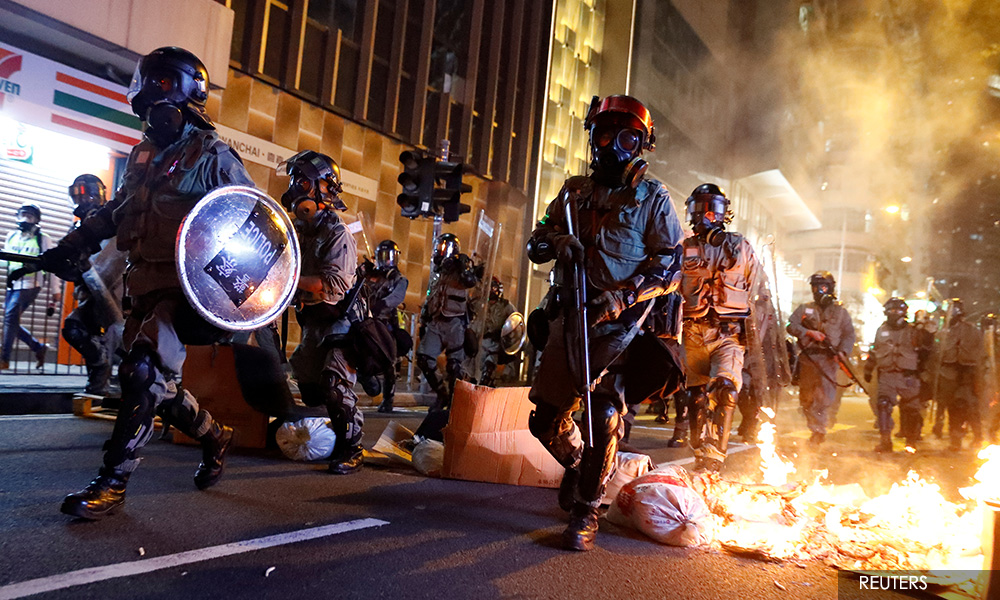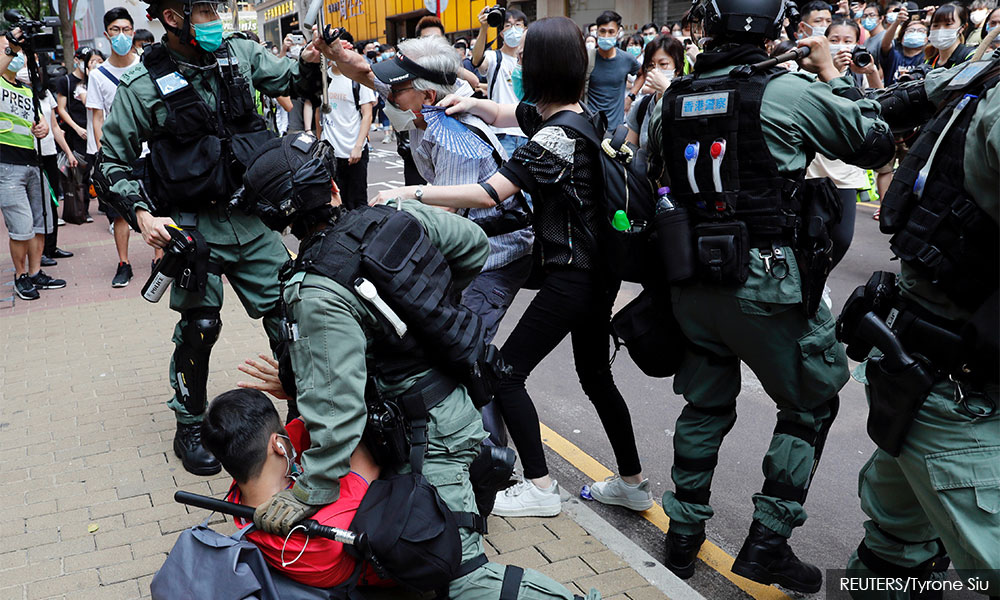The Film Censorship Board of Malaysia (LPF) has banned a Hong Kong film from screening in Malaysia for allegedly glorifying violent protests and for its potential to affect Malaysia-China bilateral relations.
The film, ‘May You Stay Forever Young’, depicts a 17-year-old girl’s attempt to kill herself during the massive anti-extradition protests in Hong Kong and her friends’ efforts to rescue her.
The film is based on the anti-Beijing protests in Hong Kong in 2019, where several youths took their own lives.
The film was nominated for Best New Director and Best Editing in Taiwan’s Golden Horse Award 2021 and it also won the Netpac (Network for the Promotion of Asian Cinema) Award.
In a letter that Malaysiakini got to see, the LPF informed the distribution company that the film was not approved for screening due to six reasons.
“The film is themed around political issues in Hong Kong following massive demonstrations opposing the amendments to the Extradition Bill in Hong Kong. It portrayed a group of teenagers who joined the demonstration to the point of being willing to kill oneself.
“The film was banned from screening in China and has not yet been screened in Hong Kong. It is understood that the film was not submitted to the Hong Kong Film Censorship Board and, therefore, it has not been allowed to screen so far,” the letter states.
‘Film normalises extreme demonstrations’
In the same letter, which is dated May 31, the LPF said the film aimed to “draw attention and sympathy from the world towards the predicament of Hong Kongers and in the hope that world leaders will pressure the Hong Kong government to change its stance while glorifying the protesters' struggle”.
“The film depicts extreme violence and abuse of power by the police against protesters in dealing with the issue of illegal gatherings and riots.

“The film also carries a message that normalises the extreme demonstrations in protesting against any policy of a country that can give unhealthy teachings to the audience in Malaysia,” said the board.
The censorship authority under the Home Ministry also said that the Foreign Ministry has been consulted over this matter.
“The Foreign Ministry is of the opinion that the screening of this film in Malaysia will affect the bilateral relations between Malaysia and China.
“The Malaysian government does not want to make Malaysia a base of irresponsible parties to promote any anti-government or third-country stance in Malaysia, which is worried to have implications on bilateral relations between Malaysia and other countries,” the letter read.
Malaysiakini has contacted the LPF for comment.
Distributor disappointed with ‘self-censorship’
Meanwhile, Lee Wei Hong, who arranged for the film to be screened in Malaysia, expressed disappointment with the authorities’ decision, believing it to be an act of self-censorship by the Foreign Ministry.
“The Foreign Ministry should respect and safeguard Malaysians’ right to know and let them judge for themselves about what is right and wrong, instead of allowing the will of the Chinese government to override the dignity of Malaysia.
“The fact that this film is allowed to be screened in Singapore has made Malaysia instantly inferior on the world stage of freedom of speech. That’s what I find ironic.
“I call on the LPF to review their decision and show that they are with the people of Malaysia," Lee said when contacted by Malaysiakini.

Lee also organised the screening of another documentary on the Hong Kong protests, ‘Revolution of Our Times’, in Malaysia this April. The film was not shown in cinemas but private screenings were held in Selangor, Penang, Ipoh, Sarawak and Johor.
The police at that time summoned Lee before the film was screened to learn his motives for showing in Malaysia a film that has been banned in China and Hong Kong.
Hong Kong was rocked by massive protests in 2019 when millions of people opposed a controversial bill that would have allowed extradition from Hong Kong to China.
Critics of the proposed law said it would allow Beijing to arrest and extradite political dissidents in the port city at will, undermining Hong Kong’s judicial independence under the “one country, two systems” framework and the city’s Basic Law.
The bill was withdrawn in September 2019 after facing months of protests. However, the demonstrations also marked the start of a harsh crackdown by Beijing in Hong Kong, culminating in the passage of the National Security Law in June 2020 that critics said effectively outlawed dissent.
Beijing and the Hong Kong government, however, declared that the new law had restored peace and stability in the city.
The Chinese community in Malaysia is divided on the issue and heated debates are common online. While many empathise and support the protesters, many also see the demonstrators as saboteurs pushing for Hong Kong's independence and trying to split China. - Mkini




No comments:
Post a Comment
Note: Only a member of this blog may post a comment.